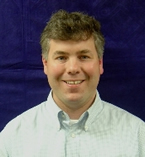MD, FAAP
Assistant Professor of Psychiatry and Pediatrics
Location:
Carolina Institute for Developmental Disabilities – Chapel Hill
Education and Training:
B.S., North Carolina State University
M.D., University of North Carolina at Chapel Hill School of Medicine
Triple Board Program (Pediatrics/Psychiatry/Child Psychiatry), Brown University
Summary Statement:
As a physician with training in General Pediatrics and Adult/Child and Adolescent Psychiatry, and as someone who has spent much of his clinical time working in interdisciplinary teams, Dr. Christian holds strongly to the notion that any one lens is far too narrow a tool through which to view patients. This is especially important when it comes to working with children, adolescents, and adults who have both neuro-developmental disorders and behavioral/emotional/psychiatric challenges. More specifically, gaining the most complete understanding and serving these individuals most effectively, requires that they always be viewed through the bio-psycho-social lens. Far too often a diagnosis is made or a treatment is chosen based on an incomplete understanding of these individuals. This perspective drives his clinical work, his teaching style, and his research at The Carolina Institute for Developmental Disabilities at UNC Chapel Hill. Dr. Christian’s predominate clinical duties are within an interdisciplinary clinic with a psychologist where they attempt to put this philosophy into practice. They also teach trainees and expose them to this world view. It is fitting that their trainees come from a variety of backgrounds including: medicine, allied health sciences, psychology, and education. Dr. Christian’s research interests fall into two main areas that are best described as oriented in the comparative effectiveness research arena. The first area relates to attempting to understand how to best provide medical/behavioral services to this growing and complex group of individuals and their families. More specifically, how can interdisciplinary care teams function effectively and sustainably? The second area focuses on attempting to understand the real world effectiveness of psychotropic medication usage in this population. More specifically, are there patterns of care or models of medical care that involve psychotropic medication usage that are associated with better or worse outcomes for these individuals? As this line of research develops, Dr. Christian plans to develop specific models of care which can serve these individuals clinically and simultaneously become platforms from which to conduct real world practice based clinical and health services research.
See the website of the Carolina Center for Development and Learning, http://www.cidd.unc.edu

